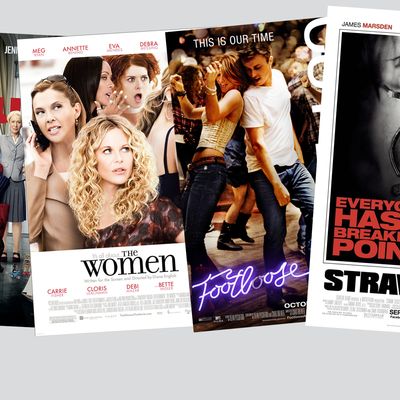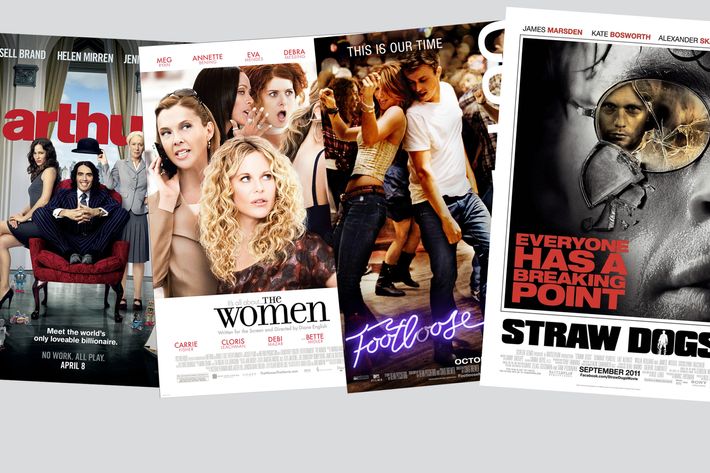

Vulture has long been your source to explain what’s going on in Hollywood. Now we’re proud to introduce a new columnist for the site who knows exactly how the town works, because he works in it every day: Gavin Polone. An agent turned manager turned producer, Polone formed the production company Pariah in 2001, which has brought you such movies and TV shows as Panic Room, Zombieland, Gilmore Girls, and Curb Your Enthusiasm. Savvy and unapologetically outspoken, he’ll be bringing his opinions on all aspects of the business to Vulture in a new feature called Making the Sausage.
The total box office is down 4 percent from 2010 so far this year, but the film industry should pay closer attention to a far more revealing and damning number: 2011 looks to have the lowest number of actual tickets sold since 1996, according to Nash Information Services. The only reasons the drop in overall grosses has been held to single digits are 3-D surcharges and general ticket-price raising, because make no mistake, the film audience is shrinking dangerously. Most people I talk to say they aren’t going to theaters because “there isn’t anything to see.” When I probe deeper I learn that they actually mean, “Everything seems like something I’ve already seen.” The marketplace has been stocked with an ever-growing collection of rereleases, sequels, and remakes, thanks to an entertainment industry that suffers from a condition I’ve named corporatephagia. This is the entertainment industry version of a behavior evidenced by my dog, Joey, that’s called coprophagia: He decides that a meal he has previously enjoyed can be appreciated again once it has been processed through his system and emerged out of the opposite end from which it entered.
As I know from personal experience, film executives — most of whom use terms like content, brands, and franchise when talking of potential film projects — are directed by their bosses to mine the studio’s libraries for remakes. On numerous occasions, I’ve been told by grasping and desperate execs to take a look at their catalogue and come back to them with ideas on how to remake something. The motivation for studios to focus on their own film libraries for ideas is that they’re the greatest hard asset they possess: The last few studios to change hands (Miramax, MGM, and DreamWorks) were priced solely on the value of their libraries, with no credit given for their actual moviemaking infrastructure. Since home video revenue has cratered during the past few years, deriving revenue from those older titles through other means than selling ancillary viewings is imperative if the studios don’t want to write down the value of their assets. When a studio remakes one of its own forgotten or fading films, it implicitly boosts its value, which then in turn helps boost the studio’s total worth. And that’s how we end up with remakes of The Omen, The Poseidon Adventure, The Women, The Stepfather, Halloween, The Taking of Pelham 1,2,3, Race to Witch Mountain, The A-Team, Fame, Fright Night, Conan the Barbarian, Land of the Lost, The Mechanic, Arthur, The Green Hornet, and now, Straw Dogs. Sure, not all of those releases were commercially unsuccessful, but it doesn’t mean they were good. After paying for a ticket to those films, many viewers were left with the same feeling I get when my dog Joey tries to lick me after partaking in his self-generated snack. (Are there any of my potential employers whom I haven’t pissed off with that last sentence?)
Last weekend was emblematic of this affliction. A 3-D rerelease of The Lion King led the weekend’s box office while a remake of the classic and influential film Straw Dogs bombed miserably. The Lion King makes some sense; in the years before DVD, Disney always rereleased its animated classics for a new generation, and the 3-D upgrade gave young families an added excuse to leave the house. But remaking Straw Dogs, which is probably one of the 100 best films of all-time?
A remake is an understandable, maybe even good, idea when the filmmaker brings something new to it. The digital technology used in Rise of the Planet of the Apes allowed for a more realistic rendering of the eponymous characters. Though I loved and watched all of the original Apes films over and over as a kid, those rubber masks worn by Roddy McDowall and the others were ridiculous. Tim Burton’s 2001 attempt was faithful to the original, using better makeup and offering more production value, but the apes still looked like actors in suits. They didn’t seem real, and the movie was boring and forgettable. In Rise, the apes looked like apes, creating greater separation, thematically, from the human characters, and making for a more interesting and inspired story. And when the Coen brothers remade True Grit, they hadn’t even seen the 1969 John Wayne version; they based it solely on Charles Portis’s 1968 novel, which was far darker and often hilarious.
Conversely, the 2006 rehashing of The Omen was so similar to the 1976 original that David Seltzer, the screenwriter of the first film, received sole screenplay credit from the Writers Guild of America, despite not having worked on the latest version at all. The billing block for the latest Straw Dogs includes a “based on the movie by” credit rarely seen in a film; the original was based on Gordon Williams’s novel The Siege of Trencher’s Farm, but there’s no mention of that source in Straw Dogs ‘11, just as, on the other hand, the credits of the Coen brothers’ True Grit cite Portis’s book, not the previous picture.
Going to the movies is a habit that has been ingrained in our culture for close to a century. But however difficult it might be to imagine American leisure without the staple of theatrical films, it could happen once seeing a film stops being special. The movie studios have overvalued spectacle when gauging what drives people to spend time and money to go to the cinema. Yes, dazzling visual effects may be attractive, but not in the same way that original stories and characters can be, and at a much lower cost.
The making, marketing, and distribution of filmed entertainment is a business. But unlike inventing a nuclear breeder reactor or making a resin chair out of recycled Coke bottles, it’s also an art. And if people continue to feel that there is nothing creative and original to see at their local multiplex, they’ll find other things to do with their time and the bond between the audience and the experience of going to a movie will finally be broken. And so will one of the few industries in the world where America is still the undisputed leader.
Related: One in Three Films Next Year Will Be Based on Unoriginal Material

